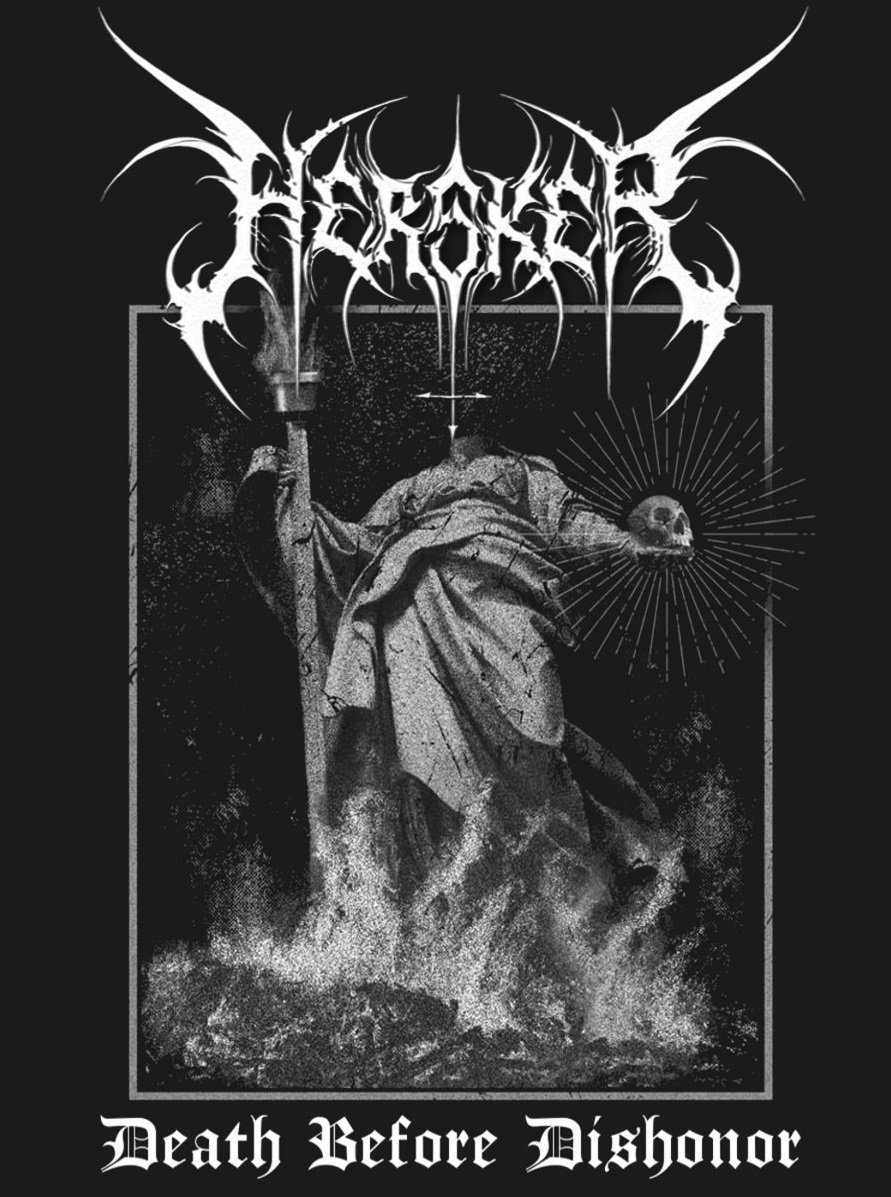Death Before Dishonor Meaning: A Comprehensive Exploration Of Its Origins, Philosophy, And Modern Implications
The phrase "death before dishonor" carries profound significance in various cultural, historical, and personal contexts. It reflects a deep commitment to honor, integrity, and principles, even in the face of extreme adversity. This saying has resonated across centuries and continues to inspire people worldwide. In this article, we will delve into its meaning, origins, and relevance in today's world.
This powerful phrase has been adopted by military organizations, philosophical movements, and individuals who value honor above all else. Its essence lies in the belief that living with integrity and upholding one's principles is more important than survival at any cost. As we explore its meaning, we will uncover the historical roots and cultural significance of this timeless concept.
In today's fast-paced world, where values often seem to be compromised for convenience or gain, "death before dishonor" serves as a reminder of the importance of staying true to oneself. By understanding its origins and implications, we can gain a deeper appreciation for the values it represents and how they can be applied in our lives.
Read also:Poppi Louiz Naked
Table of Contents
- The Origin of "Death Before Dishonor"
- The Philosophy Behind the Saying
- Historical Context and Usage
- The Military Connection
- Cultural Impact and Influence
- Modern Relevance and Application
- Psychological Aspects of Honor and Sacrifice
- Ethical Considerations in Upholding Honor
- Real-Life Examples of Death Before Dishonor
- Criticisms and Controversies Surrounding the Concept
The Origin of "Death Before Dishonor"
The roots of "death before dishonor" can be traced back to ancient civilizations where honor was considered paramount. The concept emerged from societies that placed immense value on personal integrity and reputation. In many cultures, dishonor was seen as a fate worse than death, leading individuals to choose death over tarnishing their name or violating their principles.
Historical Roots
Historically, the idea of preferring death to dishonor was prevalent in warrior cultures such as ancient Sparta, Japan's samurai tradition, and medieval European knights. These societies cultivated a code of conduct that prioritized honor above survival. For example, the samurai's Bushido code emphasized seppuku (ritual suicide) as a way to restore honor if it had been compromised.
Cultural Variations
While the phrase itself may not have existed in its exact form in all cultures, the underlying philosophy has been expressed in various ways throughout history. In Western literature, this concept is evident in works like Homer's "The Iliad," where characters choose glory and honor over life itself. Similarly, in Eastern philosophy, Confucianism and Buddhism emphasize the importance of moral integrity and self-respect.
The Philosophy Behind the Saying
At its core, "death before dishonor" is a philosophical stance that prioritizes moral and ethical principles over personal survival. It reflects the belief that life without honor is not worth living. This philosophy is rooted in existential and moral frameworks that value self-respect, dignity, and integrity above all else.
Key Principles
- Honor: Upholding one's reputation and principles.
- Integrity: Staying true to one's values, even in difficult situations.
- Self-Respect: Valuing oneself and refusing to compromise on core beliefs.
Modern Interpretations
In contemporary society, the philosophy of "death before dishonor" can be applied in various contexts, including business ethics, personal relationships, and social justice. It encourages individuals to stand firm in their convictions and resist the temptation to compromise their values for short-term gain.
Historical Context and Usage
Throughout history, "death before dishonor" has been invoked in moments of crisis and sacrifice. From ancient battles to modern conflicts, individuals and groups have demonstrated their commitment to this ideal by making the ultimate sacrifice for their beliefs.
Read also:Brian Tyler Cohen Husband The Man Behind The Music And Beyond
War and Conflict
In military history, the phrase has been used to inspire soldiers to fight with courage and determination. During World War II, for example, Allied forces often adopted the motto to emphasize the importance of standing firm against tyranny and oppression. Similarly, resistance movements around the world have embraced the concept as a symbol of defiance and bravery.
Personal Stories
Many historical figures have exemplified the principle of "death before dishonor." Joan of Arc, for instance, refused to renounce her faith even under threat of execution. Her unwavering commitment to her beliefs has made her a symbol of courage and integrity throughout history.
The Military Connection
The military has long been associated with the concept of "death before dishonor." In many armed forces, the phrase serves as a rallying cry for soldiers to uphold their duties and maintain their honor, even in the face of overwhelming odds. It reflects the ethos of sacrifice and loyalty that defines military service.
Code of Conduct
Military codes of conduct often emphasize the importance of honor and integrity. For example, the U.S. military's Code of Conduct states that service members must never surrender voluntarily and must resist interrogation to the utmost of their ability. This reflects the principle of preferring death to dishonor in the context of military service.
Modern Applications
In contemporary military operations, the concept continues to inspire soldiers to uphold their values and protect their comrades. It serves as a reminder of the sacrifices made by those who came before and the responsibility to maintain the highest standards of conduct.
Cultural Impact and Influence
The phrase "death before dishonor" has permeated popular culture, appearing in literature, films, and music. Its enduring appeal lies in its ability to resonate with universal themes of honor, sacrifice, and courage. Through its cultural influence, the saying has become a symbol of strength and resilience.
Media Representations
In movies like "300" and "Braveheart," the concept of choosing death over dishonor is central to the narrative. These films portray historical figures and fictional characters who exemplify the values represented by the phrase. Similarly, in literature, works such as Shakespeare's plays often explore the tension between survival and maintaining one's honor.
Social Movements
The idea of "death before dishonor" has also been adopted by social movements advocating for justice and equality. Activists who risk their lives for their cause often embody the spirit of the phrase, demonstrating that some principles are worth fighting for, even at great personal cost.
Modern Relevance and Application
In today's world, the concept of "death before dishonor" remains relevant, albeit in different forms. While the literal interpretation may not always apply, the underlying principles of integrity and self-respect continue to guide individuals in their personal and professional lives.
Business Ethics
In the corporate world, the idea of upholding one's values can be applied to ethical decision-making. Companies that prioritize transparency and accountability over profit demonstrate a commitment to principles akin to "death before dishonor." This approach not only builds trust with stakeholders but also fosters a culture of integrity within the organization.
Personal Relationships
On a personal level, the phrase encourages individuals to maintain their self-respect and refuse to compromise their values for the sake of convenience or approval. Whether in friendships, romantic relationships, or family dynamics, the principle of honor can guide individuals to make choices that align with their core beliefs.
Psychological Aspects of Honor and Sacrifice
The psychology behind "death before dishonor" involves complex emotional and cognitive processes. The desire to maintain one's honor is deeply rooted in human psychology, influencing decisions and behaviors in profound ways. Understanding these aspects can provide insight into why individuals are willing to make significant sacrifices for their beliefs.
Motivations and Drives
Research in psychology suggests that the need for self-respect and social approval drives many of the decisions people make. When faced with a choice between dishonor and death, individuals may prioritize their sense of identity and integrity over survival. This reflects the powerful influence of internal values and external expectations on human behavior.
Impact on Well-Being
While the pursuit of honor can lead to admirable actions, it can also have negative consequences if taken to extremes. The pressure to maintain one's reputation may result in stress, anxiety, or even self-destructive behavior. Balancing the desire for honor with the need for self-care is essential for maintaining overall well-being.
Ethical Considerations in Upholding Honor
While the concept of "death before dishonor" is rooted in noble ideals, it also raises ethical questions about the nature of honor and sacrifice. Understanding these considerations is crucial for applying the principle in a responsible and thoughtful manner.
Relativism and Context
What constitutes honor can vary depending on cultural, social, and individual factors. In some contexts, actions considered honorable in one society may be viewed as dishonorable in another. Recognizing these differences is important for fostering mutual understanding and respect.
Consequences and Responsibility
When choosing to prioritize honor over survival, individuals must consider the potential consequences of their actions. The responsibility to weigh the impact on others and the broader community is an integral part of ethical decision-making. By balancing personal values with societal obligations, individuals can make choices that reflect both honor and compassion.
Real-Life Examples of Death Before Dishonor
Throughout history, there have been numerous examples of individuals who exemplified the principle of "death before dishonor." Their stories serve as powerful reminders of the strength of character and conviction that can inspire others to uphold their values in the face of adversity.
Historical Figures
Figures such as Nelson Mandela, who endured years of imprisonment rather than compromise his principles, and Mahatma Gandhi, who advocated for nonviolent resistance in the face of oppression, demonstrate the power of standing firm in one's beliefs. Their unwavering commitment to justice and equality has left a lasting legacy.
Modern Heroes
In contemporary times, individuals like Malala Yousafzai, who survived an assassination attempt for her advocacy of girls' education, and Edward Snowden, who risked his freedom to expose government surveillance programs, have shown that the principle of "death before dishonor" remains alive and relevant today.
Criticisms and Controversies Surrounding the Concept
Despite its noble intentions, the concept of "death before dishonor" has faced criticism and controversy. Some argue that the emphasis on honor can lead to unnecessary sacrifices and a lack of flexibility in decision-making. Others question whether the pursuit of honor is always justified, especially when it conflicts with other moral imperatives.
Pragmatic Concerns
From a pragmatic perspective, prioritizing honor over survival may not always be the most effective strategy. In certain situations, compromise or negotiation may offer better outcomes than rigid adherence to principles. Balancing idealism with practicality is essential for making sound decisions.
Moral Dilemmas
The concept of "death before dishonor" often raises moral dilemmas when applied to real-world situations. For example, in cases where personal honor conflicts with the greater good, determining the right course of action can be challenging. These dilemmas highlight the complexity of ethical decision-making and the importance of considering multiple perspectives.
Kesimpulan
In conclusion, the phrase "death before dishonor" encapsulates a powerful philosophy that has resonated across cultures and centuries. By exploring its origins, historical context, and modern applications, we gain a deeper understanding of its significance and relevance in today's world. While the concept raises important ethical questions, its core principles of honor, integrity, and self-respect continue to inspire individuals to live with purpose and conviction.
We invite you to share your thoughts and experiences related to this topic in the comments below. Your insights can enrich the conversation and provide valuable perspectives for others. Additionally, feel free to explore other articles on our site that delve into similar themes and ideas.


